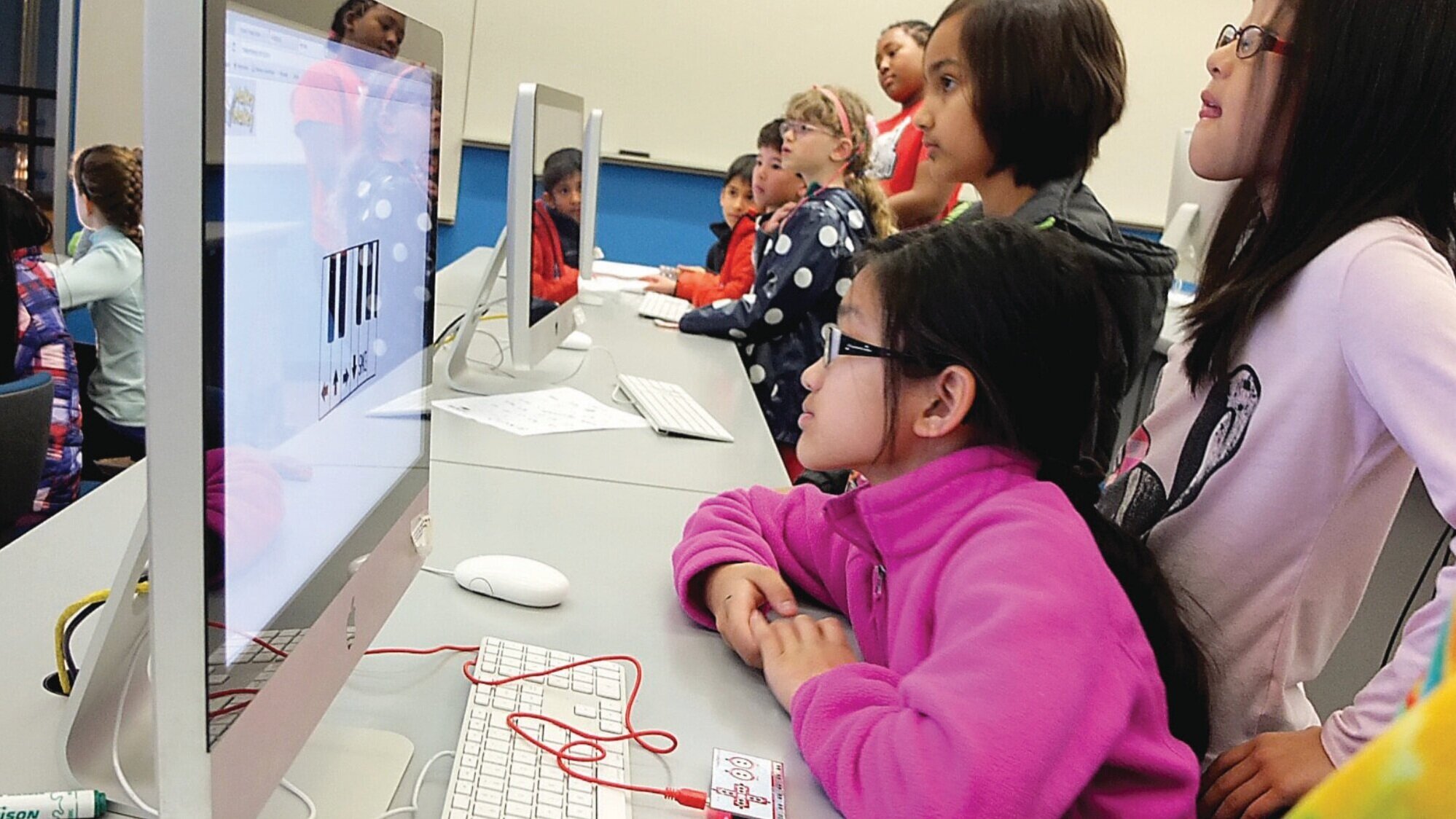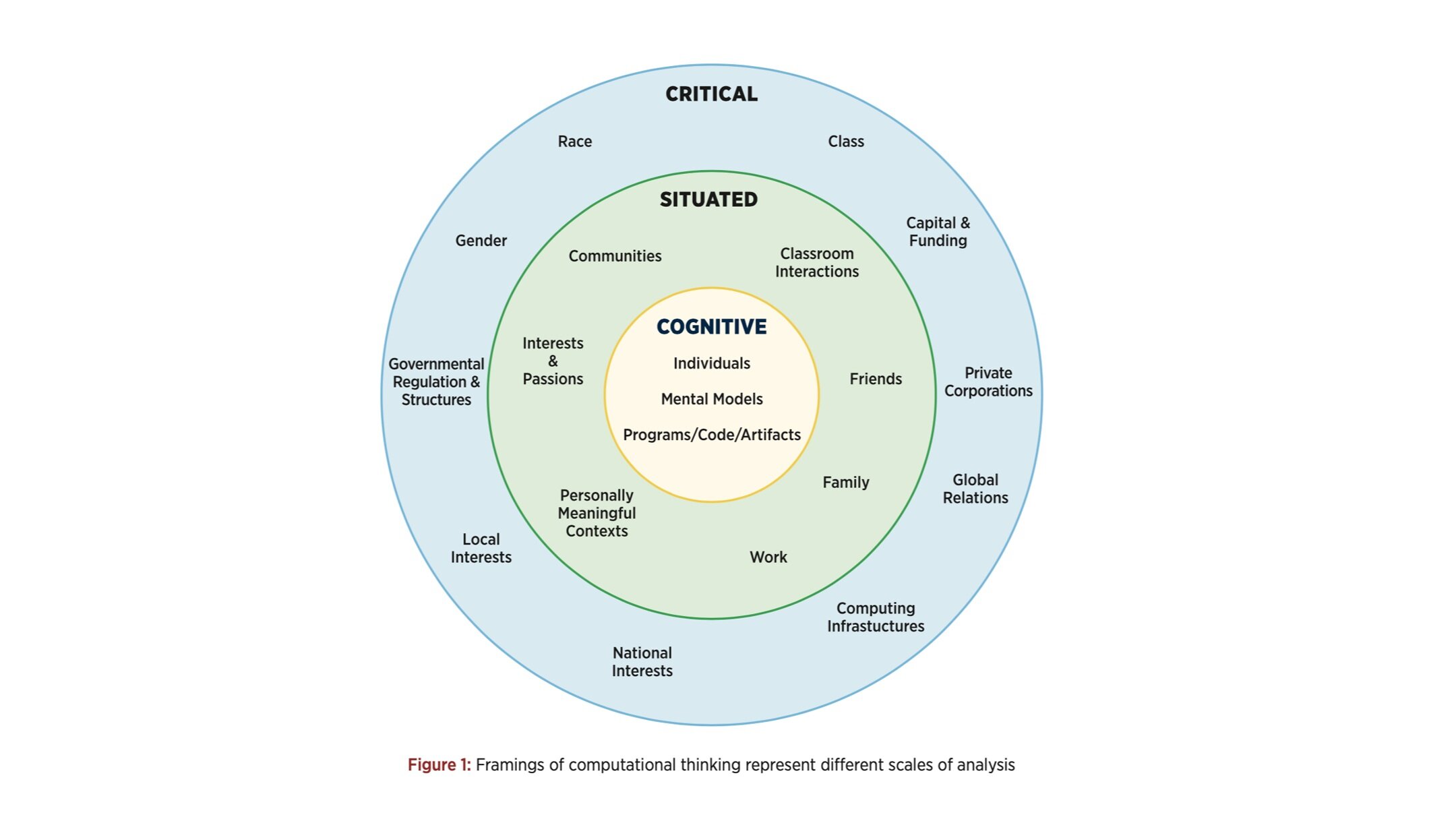Computational Thinking
The increased interest in promoting CS education for all has been coalescing around the idea of "computational thinking." Several framings for promoting computational thinking in K-12 education have been proposed that each place different emphases on either (1) skill and competence building, (2) creative expression and participation, or (3) social justice and ethics. A series of papers reviews each framing and how the framings structure the theory space of computational thinking. The goal is to help CS education researchers, teachers, and designers unpack and leverage the complexities of this theory space (rather than ignoring it) while also addressing broader educational concerns regarding diversity, providing new directions for how students and teachers can actively participate in designing their digital futures, and directing current computing education efforts towards a more humanistic orientation.
Related Research
Kafai, Y. B. & Proctor, C. (accepted). A Revaluation of Computational Thinking in K-12 Education: Moving Towards Computational Literacies. Educational Researcher
Kafai, Y. B., Proctor, C., & Lui, D. (2019). From theory bias to theory dialogue Embracing cognitive, situated and critical framings of computational thinking in K-12 CS education. In Proceedings of the 2019 ACM Conference on International Computing Education Research (ICER '19) (pp. 101–109). New York, NY: Association for Computing Machinery. Link to free access
Kafai, Y. B. (2016). Moving from computational thinking to computational participation. Communications of the ACM, 59(8), 26-27. Link to PDF
Burke, Q., O’Byrne, I. & Kafai, Y. B. (2015). Computational Participation: Understanding Coding as an Extension of Literacy Instruction. Journal of Adolescent & Adult Literacy, 59(4), 371-375.
Kafai, Y. B. & Burke, Q. (2014). Mindstorms 2.0 Children, Programming, and Computational Participation. In Proceedings of Constructionism, Vienna, Austria. Link to PDF
Kafai, Y. B. & Burke, W. Q. (2013). The Social Turn in K-12 Programming: Moving from Computational Thinking to Computational Participation. In Proceeding of the 44th ACM technical symposium on Computer science education (SIGCSE '13)(pp. 603–608). Association for Computing Machinery, New York, NY, USA. Link to PDF
Kafai, Y. B., & Burke, Q. (2013). Computer programming goes back to school. Phi Delta Kappan, 95(1), 61-65. Link to free access

